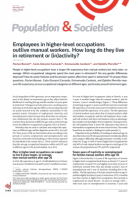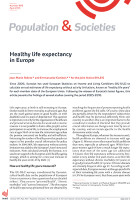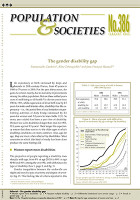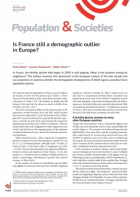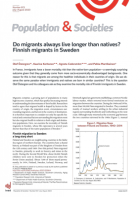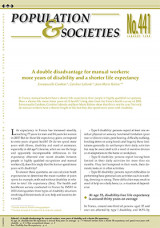
@@src2@@
A double disadvantage for manual workers: more years of disability and a shorter life expectancy
Population and Societies
n° 441, January 2008
In France, manual workers have a shorter life expectancy than people in highly qualified occupations. Does a shorter life mean fewer years of ill health? Using data from the French health survey of 2003, Emmanuelle Cambois, Caroline Laborde and Jean-Marie Robine show that this is not the case. Not only do manual workers have a shorter length of life, but they also spend more years with disability.
In 2003, in France, men aged 35 could expect to live a further 43 years, including 28 free of disability, and a woman a further 49 years, including 29 free of disability. For men, only 3 years of life on average are spent with the most severe disability, often resulting in dependence, and for women, 5 years. The number of years spent with or without disability varies by occupational class. In 2003, in France, men in highly qualified occupations aged 35 could expect to live for a further 47 years, including 34 free of disability, and male manual workers a further 41 years, including 24 free of disability. These differentials increase with age: after age 60, male and female manual workers live more years with disability than without, and have more severe disability than persons in highly qualified occupations. In short, manual workers combine the dual disadvantages of a shorter life expectancy and more years with disability.

